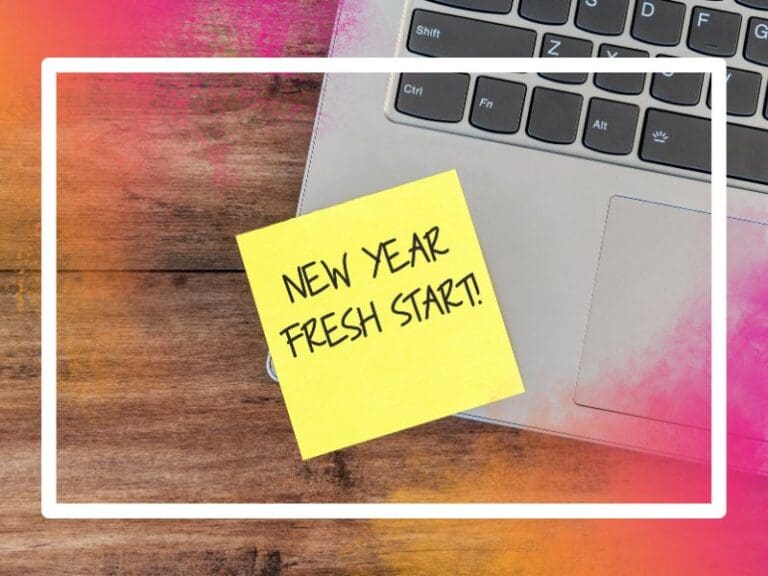It’s something of an understatement to say that the last few years have seen the world of work change dramatically.
Now firmly in the post-pandemic era, but with stringent economic pressures remaining, things remain turbulent when it comes to business. So what can employees and business owners expect this year? What will change, and what will stay the same? We spoke to six women in business to get their insights into what lies ahead.
Shifting business priorities
After trends such as the Great Resignation, difficult economic conditions have meant that there has been an increasing shift in the balance of power back towards the employer. Becky Wallace, Head of People at LearnUpon, explains: “In 2025, employers will start being more upfront and adamant on their expectations around return to office (RTO), and it will be interesting to observe the companies that are doubling down on RTO versus some of the more progressive companies that are promoting the benefits of remote working.”
She continues: “We are almost five years post-pandemic, and it feels like we will see many companies return to the office full-time by the end of 2025. Given the economic conditions, I don’t think this will have as big a knock-on effect on resignations in the same way that we saw during the ‘great resignation’ trend in 2020.”
As well as an increasing drive to return to offices, many organisations have begun to scale back their diversity and inclusion efforts, in a worrying trend. However, Shirley Knowles, Chief Inclusion and Diversity Officer at Progress, points out that there are still some companies “that are keeping their commitment to creating and fostering an inclusive culture where everyone has the opportunity to grow, develop and succeed at work.”
“Because of this commitment,” she adds, “I believe that companies that ‘stay the course’ will likely have the upper hand with attracting talent as younger generations want to work for an employer who cares about people and the environment instead of solely focusing on profits and the success of the business.”
Where will AI go next?
Of course, the big story of the last few years has been the rise of AI. When it comes to the world of work there is still a large amount of uncertainty as to what impact AI will have. However, we are now starting to see real life use cases implemented, and some of these can bring significant benefits.
“As we move into 2025, AI becomes more and more relevant and the tools at our disposal have components of AI driving behind it,” explains Martha Delehanty, Chief People Officer at Commvault. “GenAI opportunities like linking a prospective candidate’s LinkedIn profile with a company’s job description will assist recruiters with personalised outreach messages. The AI-assisted InMail functionality in LinkedIn Recruiter is already showing an increased acceptance rate (nearly double our templated messages) and this is just the beginning. In the coming year we will also see changes well beyond resume screening, to include helping organisations predict cultural fit, forecast employee engagement, and enhance retention strategies. Companies that integrate AI thoughtfully in HR will lean heavily into soft skills and streamlining the work to be more efficient and effective.”
AI is also likely to help boost retention by improving learning and development in the workplace. “According to recent UK data, around only 10% of employees feel truly engaged in their work, highlighting an urgent need for improved learning and development opportunities,” outlines Aisling MacNamara Director of Learning, Enablement & Inclusion, LearnUpon.
“Each learner is different and unique in how they learn. AI has the potential to revolutionise the way we engage and develop employees, paving the way for more personalised, impactful learning experiences. New LMS technology is emerging that enables completely tailored learning journeys, adapting dynamically to individual interests, needs, and goals.”
She adds: “Imagine AI-powered systems that identify a learner’s unique preferences and deliver perfectly timed prompts to guide them toward success. These tools could adjust pacing, provide reminders, and track progress with precision, helping employees stay focused on their objectives.”
Katya Buratovich, Senior Manager, Implementation at LearnUpon, agrees that AI will bring benefits to the learning space, arguing that it will support the staff delivering training. “Artificial intelligence (AI) will augment more learning and development activities in the year ahead – such as programme design and delivery,” she says. “Traditionally, strong written communications and pattern identification skills have been essential for L&D professionals. However, now AI capabilities are automating these tasks – freeing up time for more strategic activities.”
An increasing regulatory burden
A big issue for many workplaces in 2025 is likely to be the increasingly complex web of legislation around the globe. Danielle Sheer, Chief Legal and Trust Officer at Commvault, points out that “with GDPR turning seven in 2025 and several countries following suit with their own privacy and data security regulations, the demand for compliance experts has turned into a fierce competition.”
“Companies are battling to attract talented leaders who can translate regulations into business programs, deliver results, and educate their organisations to embrace the spirit of these laws. This shift is ushering in a new era of meaningful regulatory alignment, moving away from the days of ‘check the box’ compliance.”
An uncertain future
In a world that feels increasingly unpredictable, it’s clear that the new year will usher in further changes in the world of work. With business and employee priorities seeming out of sync when it comes to DEI and return to office mandates, not all of these changes may be positive, especially for women in the workplace. However with AI bringing huge technological advances, there will also be exciting new opportunities. As for the details, we’ll have to wait and see exactly what the year does bring.






